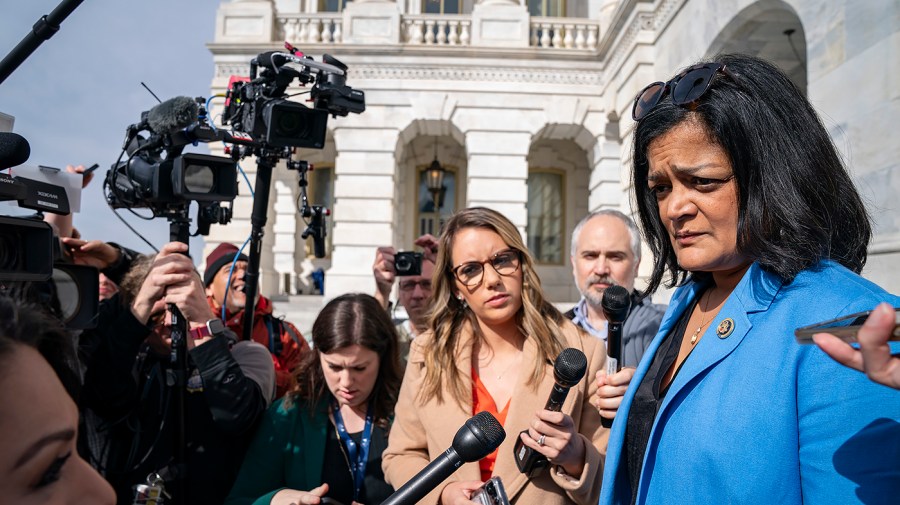House leadership eyes FISA Plan B after failed floor vote
House leadership is eyeing a Plan B to reauthorize the country’s spying authority after a band of 19 GOP lawmakers blocked the legislation from advancing Wednesday.
The plan under discussion would shorten the reauthorization of Section 702 of the Foreign Intelligence Surveillance Act (FISA) from five years down to two years and bring the controversial package back before the Rules Committee, a member and a source familiar with the situation told The Hill.
Leaders are looking to bring the legislation through the Rules panel as a stand-alone bill, the sources said, untethering FISA from three other GOP bills opposed by Democrats.
The path forward, however, is still under discussion, according to a second source familiar with the matter.
The new plan does not mark a major shift in the approach to FISA 702 that pushed the 19 Republicans to buck leadership and vote against kicking off debate.
The FISA reform bill will include a vote on an amendment to add a warrant requirement to the law — something the 19 argue should be included in the base text. They have pushed for an earlier Judiciary Committee-written FISA bill to be the main legislative vehicle.
But the change from a five-year to a two-year reauthorization could help pick up some FISA skeptics. Rep. Pramila Jayapal (D-Wash.), who sits on the Judiciary Committee and has pushed for the warrant requirement, said the shorter time frame would allow lawmakers to reform the controversial policy sooner rather than later.
“I think probably to make sure that we can continue to monitor and be able to come back for more reforms in two years,” she said Thursday.

Rep. Pramila Jayapal (D-Wash.) speaks with members of the press after voting at the Capitol March 13, 2024. (Allison Robbert)
Still, House Minority Leader Hakeem Jeffries (D-N.Y.) said Thursday that Democrats would not help Republicans pass the rule, even with FISA now set to be considered through a stand-alone rule.
FISA 702 permits the government to spy on foreigners located abroad. But Americans who communicate with targets have those interactions swept up in the process.
Lawmakers on both sides of the aisle have pushed for requiring a warrant before reviewing any information sent by Americans as they speak with targets.
They’ve clashed with opponents in both parties who feel it would gut the program, blinding law enforcement to information they may need to act on in real time.
The tanking of the rule vote by the 19 was confusing because it foiled a plan that included a full House vote on the warrant requirement.
It’s a position that isn’t supported by all who have pushed for the warrant requirement — including House Judiciary Committee Chair Jim Jordan (R-Ohio), who wants a chance for the full House to weigh the matter.
Top Stories from The Hill
- Arizona abortion ruling creates new dangers for Republicans
- Trump faces do-or-die moment with hush money trial
- Senate Democrats ‘baffled’ by calls for Sotomayor to step aside
- Walls close in on Netanyahu over Rafah invasion
Those same members fumed that Speaker Mike Johnson (R-La.) tipped the scale by indicating he was not in favor of the warrant requirement amendment.
“What we ended up with was a bill that didn’t have the warrant protections in the bill. It was going to be forced to be added as an amendment. And then the Speaker of the House put his finger on the scale against the amendment. And that pretty much is the story,” Rep. Chip Roy (R-Texas), who voted against the rule, told reporters after the vote.
The push to crush the bill gained more traction after former President Trump waded into the FISA debate Wednesday, urging lawmakers to “KILL FISA” in a post on Truth Social.
Updated at 2:23 p.m. EDT
Copyright 2023 Nexstar Media Inc. All rights reserved. This material may not be published, broadcast, rewritten, or redistributed. Regular the hill posts











